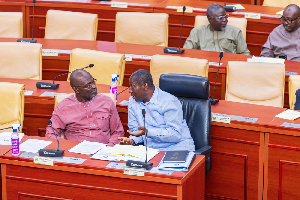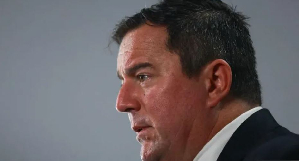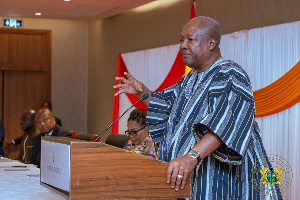Mr Philip Liverpool, Commercial Director for Kosmos Energy, has noted the need for the sustenance of the country’s domestic gas production through existing discoveries, new exploration and reliable imports.
He said it is paramount to support economic growth and prosperity.
He called for a multi-tier approach to meeting the country’s power demand underpinned by a progressive business growth agenda that incentivizes gas exploration.
Mr Liverpool said this on Tuesday in Accra at a stakeholder’s workshop on Natural Gas Pricing and Utilization Regulations.
He said the current power shortage of between 500 and 800 megawatt coupled with a future electricity demand growth of 10 per cent per annum, domestic gas was the solution to address the challenges since it is cheaper and available.
Mr Liverpool said as the economy continues to grow, an estimated 4 to 5 gigawatt of power would be required by 2025 to meet the demand of power supply.
He noted that for the country to realise its full gas potential in the short term, there is the need to build consensus on supply and demand gap to be used for planning and ensure closer collaboration between industry and government agencies in managing gas to power.
Mr Liverpool called for and enhance financial strength of the gas to power value chain and encourage the exploration for domestic gas to meet future demand and not only depend on energy which is expensive.
Dr Mohammed Amin Adam, Executive Director, African Centre for Energy Policy, said the country developed the energy policy to serve as a decision-making platform for effective management and development of the energy sector.
Dr Adam said among the objectives of the policy is to ensure that energy pricing is efficient and competitive while providing rates that are affordable as well as achieve universal access to electricity by extending the reach of electricity infrastructure to all communities by 2020.
He said the country’s gas commodity purchase states that associated gas shall be purchased at not more than one dollar per MMBTU and the “aggregation tariff”.
Dr Adam noted that the policy gas commodity sales price state that all natural gas shall be sold by the aggregator at not less than import parity prices to all users.
He was of the view that the policy on commodity gas purchase price are focussed on incentivising upstream investment in exploration and infrastructure development by emphasising cost recovery acceptable rate of return.
On the policy of gas commodity sales price, Dr Adam said the policy targets increased domestic use of gas to create a competitive environment.
He said the gas commodity and transportation policy contracts should be negotiated separately and published including price clauses and their adjustment mechanism to ensure transparency.
Business News of Wednesday, 7 October 2015
Source: GNA













